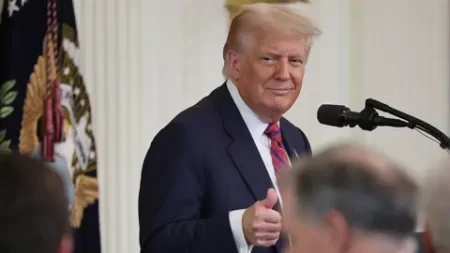**Taliban ‘Revenge’ and Labour’s ‘Case for Power’**
The current affairs in the world of politics and international relations reflect a troubling narrative involving the Taliban’s actions, alongside a significant moment for the Labour Party in the UK. Compiling various sources and media outlets, the discussion centers on two central themes: the Taliban’s alleged “vengeful killing spree” against Afghan allies in light of a leaked database and the Labour leadership’s call to focus on the party’s achievements as it seeks re-election.
Condemnation of the Taliban’s revenge actions has been highlighted in publications like the *Daily Mail*, which tells harrowing stories of Afghan soldiers and their families suffering under the wrath of the Taliban, as they closely monitor individuals connected to the former Afghan government or foreign allied forces. One poignant example involves an Afghan soldier now residing in Britain who fears for his safety and believes his brother was murdered for his association with UK forces. The newspaper notes that these reprisals are part of a broader, calculated campaign by the Taliban to intimidate and eliminate those who have been identified. This raises significant ethical concerns regarding the safety of those who assisted foreign military efforts during the war, especially given their reliance on intelligence databases, which have proven to be catastrophic for many.
On the domestic front, the Labour Party is attempting to solidify its position within the current UK political landscape. Deputy Prime Minister Angela Rayner has publicly urged Labour MPs to “focus on the party’s achievements,” emphasizing the need to articulate victories from their first year in office. As stated in *The Guardian*, her assertions underscore a strategic shift aimed at reaffirming Labour’s governance capabilities as they prepare for the next electoral challenge. Rayner’s openness to confrontation, mentioning not being intimidated by figures like Reform UK leader Nigel Farage, showcases an effort to mobilize party strength amid criticisms.
The Labour Party’s spotlight on accomplishments comes at a critical juncture as economic challenges loom governmental leadership. Prime Minister Sir Keir Starmer faces scrutiny for his handling of fiscal policies, which Conservative leader Kemi Badenoch criticizes in *The Daily Express* as a “doom loop” likely to impose more tax rises on the populace, creating a lamentable legacy for future generations. The pressing anxiety within the electorate over cost-related issues is becoming a vital topic, directly influencing public sentiment.
Additionally, the *i newspaper* reports a potential government initiative to freeze fuel duties again amid the ongoing cost-of-living crisis. In a landscape rife with economic instability, the anticipation surrounding financial policies is palpable, as citizens look toward the government for relief amid rising living expenses.
Elsewhere, *The Times* articulates sharp actions taken against Russian military intelligence, emphasizing the UK’s robust stance against international threats. As tensions escalate with encroachments from foreign states, the UK’s strategic responses become crucial focal points for both national security and international alliances.
While all these pressing issues unfold, the personal narratives that emerge—like that of the Duke of Sussex, reported by the *Daily Mirror*—offer a glimpse into the human aspects behind the headlines. His desire to reunite with his brother, the Prince of Wales, contrasts sharply with the grim political and international matters at hand, weaving personal struggles into the fabric of bigger narratives.
As these situations evolve and intersect, they draw attention to the complexity of modern governance, where internal party dynamics, international human rights, and domestic economic strategies must be navigated with care. The challenges faced by the Labour Party and the Taliban’s vengeful tactics represent the broader struggles encountered across political, economic, and personal terrains today, all of which are vital for understanding contemporary realities that shape society’s future.











